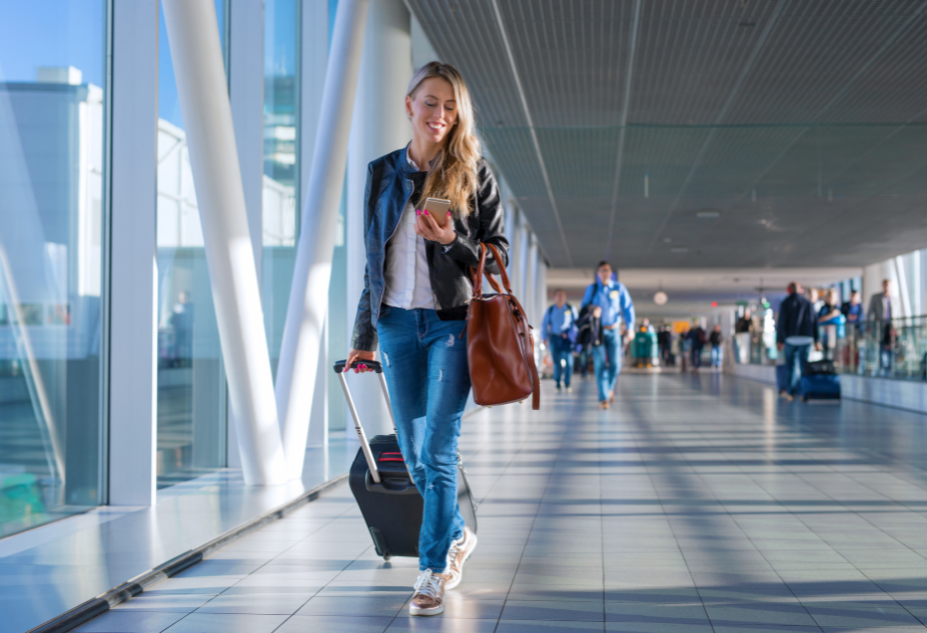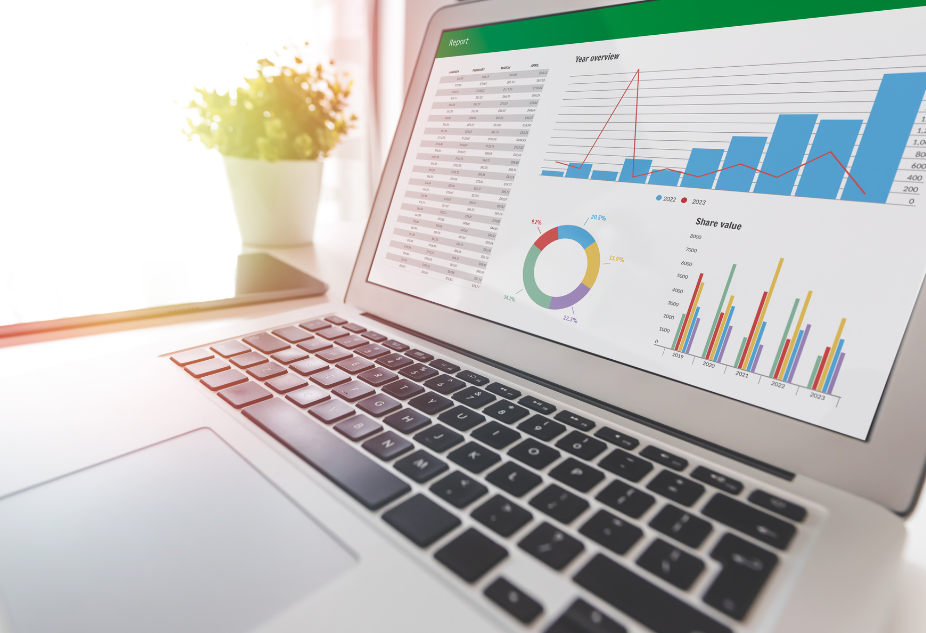As technology continues to revolutionise industries across the globe, artificial intelligence (AI) is poised to have a transformative impact on corporate travel. By 2025, we expect AI will be deeply integrated into the business travel experience, helping companies streamline operations, improve traveller satisfaction and enhance cost-efficiency.

Here’s are the key ways we expect AI to shape corporate travel in 2025, and what it means for your business.
One of the most obvious ways AI will impact corporate travel is through its influence on the booking process. AI-powered platforms will continue to revolutionise how businesses book flights, accommodations, car rentals and more
Personalised Travel Recommendations: AI analyses past travel data, employee preferences and company policies to offer personalized travel options. This makes booking a seamless experience by presenting the best flights, hotels and transport choices tailored to each traveller’s needs.
Predictive Pricing: AI algorithms can predict price fluctuations for flights, hotels and more, allowing businesses to book travel at the most cost-effective times. This can significantly reduce travel costs by ensuring that bookings are made when prices are at their lowest.
Automation: Chatbots and virtual assistants can be used to handle common booking inquiries, process requests and even handle last-minute changes, allowing employees to focus on other tasks.

By adopting AI-driven booking systems, companies can save time, reduce human error and make more informed decisions about travel costs. AI’s predictive capabilities ensure that companies get the best deals, often eliminating the need for last minute, expensive bookings.
AI isn’t just about automating processes — it’s also about improving the travel experience for employees. With AI, corporate travellers can expect more convenience, personalisation, and efficiency.
Smart Itinerary Management: AI can help travellers manage their schedules in real-time, providing automated updates on flight delays, gate changes and hotel check-in times. Travellers can also receive personalised alerts for any disruptions or necessary adjustments.
AI-Powered Travel Assistants: Virtual assistants are becoming an essential part of the corporate travel experience. These assistants are able to suggest personalised dining options, provide real-time directions and even offer local experiences based on traveller preferences.
Language Translation: AI-based language translation apps can help employees navigate non-English-speaking destinations with ease, overcoming language barriers.

With smoother travel experiences, employees will spend less time dealing with travel disruptions or stress. This leads to higher satisfaction, reduced travel fatigue and, ultimately, more productive business trips.
Managing expenses during business travel can be a tedious and time-consuming task. In 2025, AI will continue to help automate and streamline corporate travel expense management.
Expense Tracking and Reporting: AI can integrate with corporate travel systems to automatically track expenses, categorise them and generate detailed reports. This helps ensure accurate reporting and avoid discrepancies.
Receipt Recognition: AI can read and analyse receipts via optical character recognition (OCR) technology, instantly logging expenses without the need for manual data entry.
Fraud Detection: AI is increasingly able to identify unusual or out-of-policy spending patterns and flag them for review, reducing the risk of fraud or misuse of corporate funds.

By automating expense management, businesses can cut down on administrative time and improve accuracy. AI’s real-time tracking also allows for quicker reimbursement processes and tighter control over travel budgets, making financial management much more efficient.
Corporate travel policies ensure that employees are travelling within company guidelines and maintaining a budget-friendly approach. AI will increasingly help businesses monitor and enforce travel policy compliance.
Policy Enforcement: AI can automatically check travel bookings against company policies, flagging any violations before a booking is completed. This can include things like staying within a budget or booking approved airlines or hotels.
Data-Driven Insights: AI tools provide businesses with detailed insights into employee behaviour and travel patterns, allowing for the refinement of policies and the identification of areas for improvement.

By using AI to ensure travel policies are followed, businesses can avoid overspending and ensure that all employees are adhering to guidelines. These tools help businesses maintain better control over their travel expenses while empowering employees to make informed decisions that align with corporate goals.
Ensuring the safety of travelling employees is a top priority for any business. In 2025, AI will continue to play a crucial role in managing risk and responding to emergencies during business trips.
Real-Time Safety Alerts: AI can integrate with travel management systems to provide travellers with real-time alerts about potential risks such as political instability, weather disruptions, or security threats in their destination.
Emergency Assistance: AI chatbots can be available 24/7 to provide immediate assistance, helping employees find the nearest hospitals, consulates or emergency contacts.
Risk Assessment: AI can analyse data from multiple sources, including news, weather reports and global trends, which helps businesses assess the safety of destinations and adjust travel plans accordingly.

AI tools give companies peace of mind by keeping travellers safe and informed. With real-time alerts and easy access to emergency resources, businesses can ensure a more secure travel experience for their employees, minimising risks and liabilities.
Sustainability is becoming a central focus for businesses around the world, and corporate travel is no exception. AI can help companies reduce their carbon footprint and operate in a more eco-friendly manner.
Sustainable Travel Recommendations: AI is able to help businesses choose more sustainable options for flights, accommodation and transportation. This can include recommendations for direct flights, eco-certified hotels or carbon offsetting services.
Carbon Footprint Tracking: AI can track the carbon footprint of each trip and provide businesses with data to understand the environmental impact of their travel.
Optimising Travel Routes: AI-powered tools can analyse and optimize travel routes to reduce travel time and emissions.

With AI-driven sustainability tools, businesses are able to make smarter choices to reduce their environmental impact. By aligning with green practices and tracking carbon emissions, companies can build a more sustainable travel programme, which will be increasingly important to employees and clients in 2025.
In 2025, artificial intelligence will become an indispensable tool for businesses looking to streamline corporate travel, enhance the traveller experience, improve compliance and maintain safety standards. With AI taking care of the heavy lifting, companies can free up time for employees to focus on their core business objectives, all while reducing costs and improving overall efficiency.

The future of corporate travel is intelligent, efficient, and sustainable. By embracing AI, your business can stay ahead of the curve and offer employees a travel experience that’s both seamless and productive.

If your business needs assistance incorporating AI into its corporate travel programme, please get in touch with a Sure Corporate Agent.
Sure Corporate is a division of the Sure Travel Group, the oldest travel agency consortium in southern Africa. Book an obligation-free appointment with a Sure Corporate consultant to find out how our agencies can stay on top of corporate travel trends in 2025.